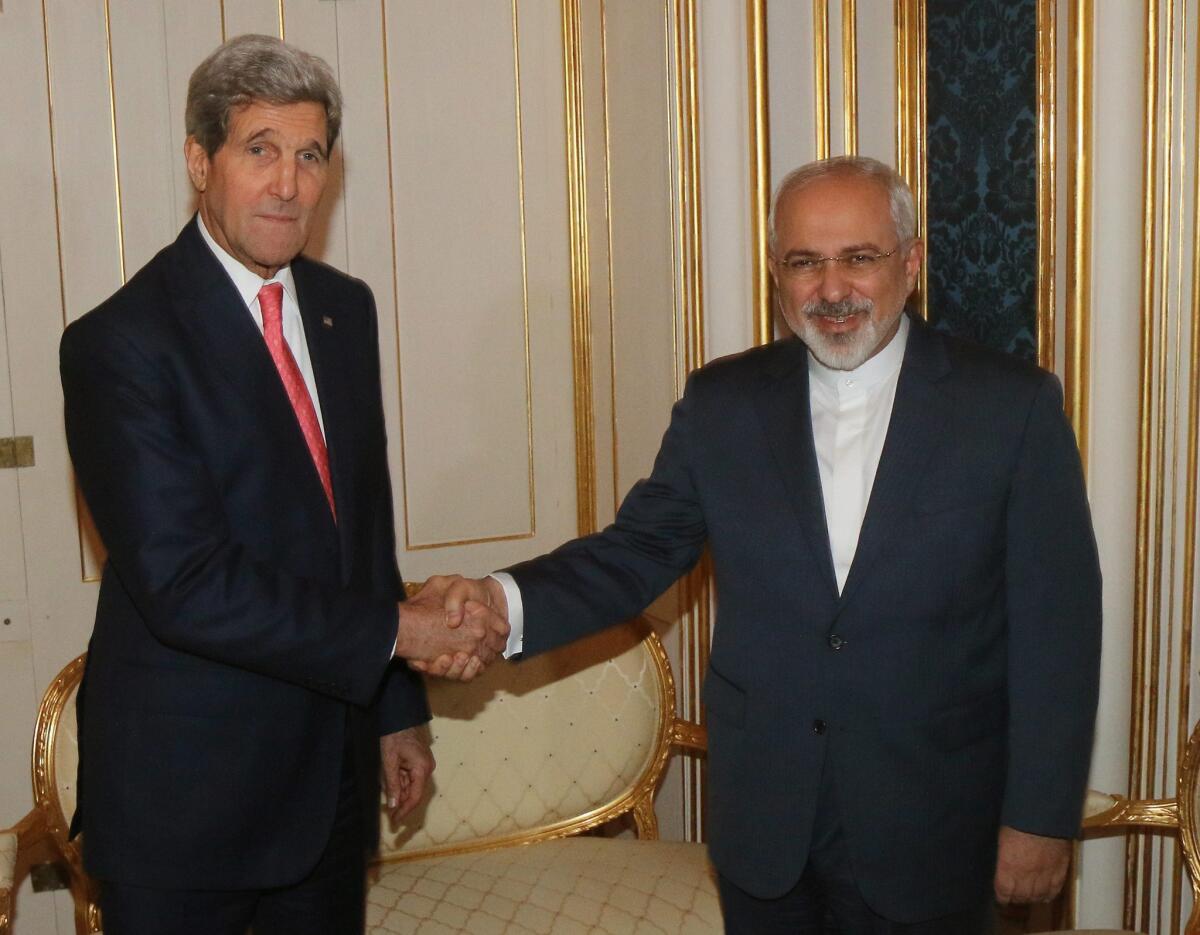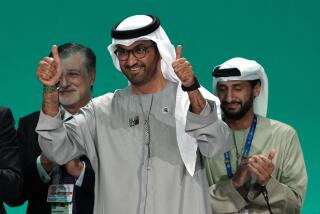Op-Ed: Defying the West on nuclear issue has become a matter of pride in Iran

In the late 1960s, the Rolling Stones recorded one of their classic tunes: âYou Canât Always Get What You Want.â The songâs philosophical message â to the extent Mick Jagger and Keith Richards thought about it â seemed to suggest that there are times in life when you canât get what you want (most everything). But you just might get what you need (less than everything but still pretty darn good).
Based on my years in and around Middle East negotiations, that tune pretty well summed up the approach to successful negotiations too. In every negotiation that worked, nobody got everything they wanted, no one got 100%. But they at least received what they really needed to make the deal. In short, the perfect was not allowed to become the enemy of the good.
The Stonesâ message was clearly not on display in the talks between six world powers and Iran last week in Vienna, certainly not on the part of the Iranian negotiators and their leaders in Tehran. In these so-called P5-plus-1 talks, U.S. negotiators may have hoped that Iran was willing to conclude a deal based on needs, not wants. But Iran clearly saw matters differently and felt little pressure to do a deal now. And hereâs why.
Itâs been evident for a good while that the negotiators in Tehran, Foreign Minister Mohammad Javad Zarif and even President Hassan Rouhani arenât running the show. No negotiator ever does. Leaders do. But for talks on truly big issues to work, negotiators and leaders need to be in sync. In this case, theyâre not. The gap between what Zarif and Rouhani might have been willing to concede, particularly on Iranâs capacity to enrich uranium, and the red lines of the supreme leader, Ayatollah Ali Khamenei, and those around him was simply too wide to make a deal.
And the negotiators clearly failed to persuade the harder line mullahs â assuming they even tried â to be more flexible or of the urgency of the situation. Iranâs leverage and the integrity of the entire negotiating enterprise will be much weaker, not stronger, in Washington once a Republican Congress comes into session. Paradoxically for the hard-liners, thatâs OK. But more pressure on Tehran probably would only convince the mullahcracy that what the U.S. really wants is regime change, not a change in behavior on the nuclear issue.
It is true that sanctions imposed by Washington, Europe and the U.N. Security Council were crucial in getting Iran to the table. But that doesnât mean economic and financial pressure is powerful enough to compel an agreement. Iran is hurting from diminished
oil sales, currency devaluation, budget deficits and banking and financial restrictions. But Iranâs capacity to withstand economic pain and to engage in what the supreme leader calls a âresistance economyâ â one resistant to sanctions and outside economic pressures â is much greater than we think. No doubt hard-line security elites are also making tons of money from the black market. Tehran also has been very agile in finding loopholes and cutting oil deals with Russia and China.
Iran also has no intention of throwing away billions invested in its nuclear infrastructure. We canât underestimate how important Iranâs nuclear program is as a hedge against regime change and as a symbol of its great power status in the region, particularly to many hard-line conservative elites convinced that the U.S. wants the mullahs gone. The nuclear issue has become part of Iranâs identity. Defying the Westâs effort to restrict that enterprise has become a matter of national pride and dignity. Iran may not want to weaponize now. But those in charge may well want the option to do so at some point of their choosing.
Iran isnât 10 feet tall, but the way the situation in the Middle East is playing out may have persuaded the mullahs that Iranâs centrality and influence in U.S. policy is increasing. There is a view that America needs Tehran to stabilize the situation in Iraq and in Syria, and to fight Islamic State militants. Indeed, Iran may actually believe that itâs winning, that there is less urgency to settle the nuclear issue now and much more incentive to not give in, and hope to gain more.
Finally, reaching an agreement in an environment in which the negotiators may have come to like and trust one another but the leaders do not is no easy matter. The domestic politics on each side allows little room for giving the benefit of the doubt. And from Iranâs perspective that means getting paid upfront with serious sanctions relief, not to be put on some kind of probation. Iranâs past and probably current cheating on nuclear matters, however, means that Washington has almost no flexibility when it comes to sanctions relief and will have even less with a Republican-controlled Congress.
Put all of this together and extending the talks for seven months becomes the least bad option, at least from the negotiatorsâ perspective.
So is a deal going to be possible next year? As Secretary of State John F. Kerry said in a news conference last week, itâs hard to imagine that time is going to make tough issues easier to resolve. Iran canât continue on its merry way to becoming a nuclear threshold state and expect serious sanctions relief. Right now, Iran isnât prepared to make a choice. Will it in coming months? Thatâs not at all clear, but one thing is. Iâm pretty sure the supreme leader isnât a Rolling Stones fan.
Aaron David Miller, a vice president at the Woodrow Wilson International Center for Scholars, served as a Middle East negotiator in Republican and Democratic administrations. He is the author of âThe End of Greatness: Why America Canât Have (and Doesnât Want) Another Great President.âFollow the Opinion section on Twitter @latimesopinion
More to Read
Sign up for Essential California
The most important California stories and recommendations in your inbox every morning.
You may occasionally receive promotional content from the Los Angeles Times.










